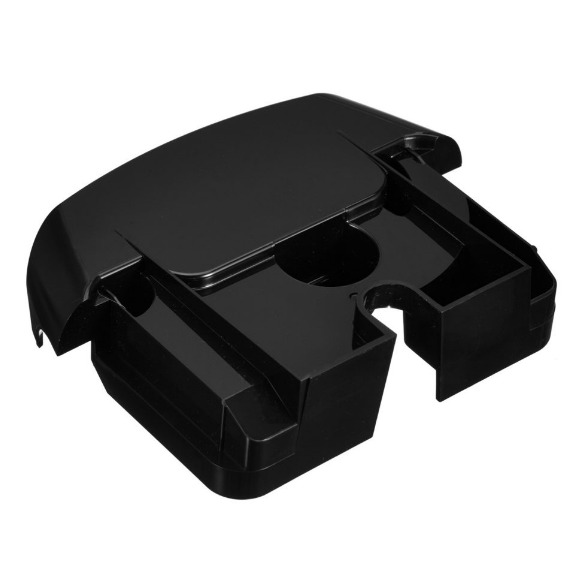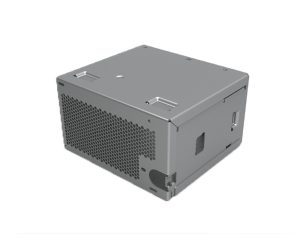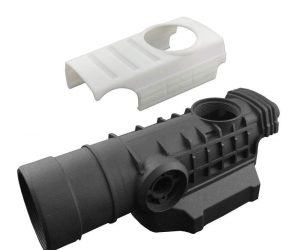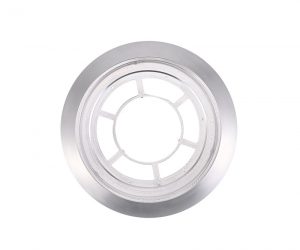The strategic integration of precision-machined components represents a paradigm shift in contemporary business operations, yielding a cascade of competitive advantages that extend far beyond mere incremental improvements. The implications are profound and multifaceted, impacting not only product quality and efficiency but also reshaping the very fabric of operational strategy and market positioning.
Firstly, the inherent precision of these components guarantees an unparalleled level of product fidelity. This translates to not only superior performance characteristics but also a demonstrably reduced failure rate, minimizing costly recalls and bolstering brand reputation. The implications for industries with stringent quality control requirements – aerospace, medical device manufacturing, and high-end automotive engineering – are particularly transformative. The resulting enhanced reliability directly translates to increased customer satisfaction and loyalty, fostering a virtuous cycle of growth.
Beyond product quality, precision machining drastically optimizes manufacturing efficiency. The inherent speed and precision of the process minimize waste, reduce lead times, and maximize throughput. This translates to significant cost savings, particularly for high-volume production runs, where the economies of scale are amplified by the inherent efficiency of the machining process. Furthermore, the ability to rapidly iterate designs and produce customized components allows businesses to respond swiftly to evolving market demands and capitalize on emerging opportunities.
The economic advantages extend beyond mere cost reduction. The ability to produce highly customized components opens up avenues for product differentiation and premium pricing. This allows businesses to occupy unique niches, commanding a higher market share and achieving greater profitability. The strategic deployment of precision-machined parts, therefore, represents a powerful tool for competitive differentiation and sustained market leadership.
However, the benefits extend beyond the purely economic. The inherent precision of the process minimizes material waste, contributing to a more sustainable manufacturing footprint. This aligns with the growing consumer preference for environmentally responsible products and strengthens a company's corporate social responsibility profile. This, in turn, can attract environmentally conscious investors and customers, further enhancing the long-term viability of the business.
In conclusion, the incorporation of precision-machined parts is not merely an operational enhancement; it represents a strategic imperative for businesses seeking to thrive in an increasingly competitive global marketplace. The confluence of superior product quality, enhanced efficiency, cost-effectiveness, customization capabilities, and environmental responsibility positions precision machining as a cornerstone of modern manufacturing excellence. Ignoring its potential is to forfeit a significant competitive advantage.
The Imperative of Precision Machining: A Paradigm Shift in Manufacturing
The relentless pursuit of enhanced product quality and unwavering consistency has propelled precision machining to the forefront of modern manufacturing. This isn't merely an incremental improvement; it represents a fundamental paradigm shift, impacting not only product fidelity but also the very architecture of operational efficiency and profitability. The implications extend far beyond the immediate benefits, resonating through supply chains and ultimately shaping competitive landscapes.
The Elusive Chimera of Consistency: A Statistical Imperative
In high-volume production, consistency transcends mere aspiration; it becomes a statistical imperative. Even minuscule deviations from prescribed specifications can trigger a cascade of downstream failures, leading to catastrophic consequences ranging from compromised functionality to widespread product recalls. Precision machining, through its inherent capacity for micron-level accuracy and repeatable processes, effectively neutralizes this risk. The resulting uniformity isn't simply a matter of aesthetics; it's the bedrock of predictable performance and reliable product lifespan. This predictability, in turn, allows for sophisticated statistical process control, enabling proactive identification and mitigation of potential anomalies before they escalate into significant production bottlenecks.
Quality: Beyond Conformance, Towards Transcendence
Quality control in complex manufacturing environments is no longer a static checkpoint; it's a dynamic, iterative process deeply interwoven with the manufacturing process itself. Precision machining, by virtue of its inherent precision and the tight tolerances it enforces, minimizes the probability of defects. This isn't merely about meeting minimum standards; it's about exceeding expectations, creating products that not only function flawlessly but also surpass anticipated performance benchmarks. The integration of advanced quality control methodologies, such as automated optical inspection and dimensional metrology, further amplifies the efficacy of precision machining in achieving unparalleled levels of quality assurance.
Efficiency and Productivity: A Synergistic Dance of Optimization
The integration of precision machining into the manufacturing process unlocks a synergistic relationship between efficiency and productivity. The reduction in cycle times, achieved through the elimination of rework and scrap, isn't simply a matter of cost savings; it represents a fundamental optimization of resource allocation. This optimization extends beyond immediate production processes, influencing inventory management, logistics, and even the design and development phases of future products.
Optimizing Production Processes: Beyond Incremental Gains
The impact of precision machining on production processes extends far beyond incremental gains in speed and accuracy. The use of CNC machines, coupled with sophisticated CAD/CAM software, enables the creation of highly complex geometries with unprecedented levels of precision. This capability opens up new avenues for design innovation, allowing manufacturers to create products with enhanced functionality and reduced material usage. The resulting reduction in waste contributes not only to improved efficiency but also to a more sustainable manufacturing model.
Increasing Throughput: Unleashing Latent Capacity
The increased throughput facilitated by precision machining isn't simply a matter of producing more units; it's about unlocking latent capacity within the existing infrastructure. By minimizing downtime associated with human error and equipment malfunction, precision machining allows manufacturers to maximize the utilization of their capital assets. This increased capacity translates directly into higher profit margins and a strengthened competitive position. Furthermore, the reduction in labor-intensive tasks allows for the reallocation of human resources to more strategic initiatives, fostering innovation and driving further improvements in productivity. The result is a virtuous cycle of continuous improvement, propelled by the inherent capabilities of precision machining.
Precision Machining: A Paradigm Shift in Manufacturing Economics
The relentless pursuit of lean manufacturing necessitates a critical examination of waste generation and rework—costly inefficiencies that plague traditional methods. Precision machining, however, offers a compelling paradigm shift, dramatically reducing these parasitic expenditures. Unlike the inherently wasteful processes of casting or forging, where material removal constitutes a significant portion of the production cycle, precision machining employs subtractive techniques with an almost surgical precision.
Consider the stark contrast: Casting, with its inherent variability and often substantial material overrun, necessitates extensive post-processing—grinding, polishing, and often, costly rework to achieve acceptable tolerances. Forging, while offering superior strength in certain applications, similarly generates significant scrap and necessitates laborious finishing operations. These processes, fraught with inherent inaccuracies, introduce a cascade of downstream problems, including assembly difficulties and potential product failure.
Precision machining, primarily through CNC milling and lathing, operates under a fundamentally different paradigm. Starting with a workpiece closely approximating the final dimensions, material removal is minimized, resulting in drastically reduced waste. The inherent accuracy of CNC technology ensures parts are manufactured to exacting tolerances, eliminating the need for time-consuming and expensive rework. This precision translates directly into reduced labor costs, minimized material consumption, and a significant decrease in scrap generation—a triple threat to manufacturing inefficiencies.
Furthermore, the impact extends beyond mere cost reduction. The elimination of rework minimizes production downtime, enhancing overall throughput and optimizing operational efficiency. The improved quality inherent in precision-machined components translates to enhanced product reliability and reduced warranty claims, further bolstering the economic advantages.
The financial implications are profound. The initial investment in advanced machining equipment is rapidly recouped through the cumulative savings realized from reduced material costs, minimized labor expenses, and diminished waste disposal fees. The long-term return on investment (ROI) is compelling, making precision machining not merely a cost-saving measure, but a strategic imperative for businesses seeking a competitive edge in today's demanding market. The transition to precision machining represents not simply an improvement in manufacturing processes, but a fundamental transformation in manufacturing economics.
The Algorithmic Imperative: Precision Machining in the Age of Disruptive Technologies
Precision machining transcends mere fabrication; it represents a paradigm shift in manufacturing, driven by the relentless pursuit of algorithmic perfection. The deployment of Computer Numerical Control (CNC) machines, far from being a mere technological upgrade, signifies a fundamental alteration in the relationship between human ingenuity and industrial processes. These sophisticated systems, capable of tolerances previously relegated to the realm of theoretical physics, unlock unprecedented levels of accuracy and efficiency, rendering traditional methods archaic. Businesses leveraging this technology are not merely participating in the market; they are actively shaping its future trajectory.
Competitive advantage in the contemporary landscape hinges on a relentless pursuit of innovation. Precision machining, far from being a static process, is a dynamic force, constantly evolving in response to emergent technologies and shifting market demands. The integration of advanced materials, such as high-strength alloys and composites, further amplifies the capabilities of CNC machining, pushing the boundaries of what's possible. This synergistic relationship between material science and precision engineering fuels a virtuous cycle of continuous improvement, driving businesses towards sustained competitive dominance.
The capital expenditure required for advanced machining equipment, while substantial, represents a strategic investment with exponential returns. The immediate gains in product quality and production speed translate directly into increased profitability. However, the true value extends beyond immediate financial metrics. The ability to consistently meet—and exceed—stringent tolerances eliminates the crippling costs associated with defects, recalls, and reputational damage. This inherent risk mitigation is a silent, yet powerful, driver of long-term financial stability.
Human capital, however, remains the critical variable. The allure of working with cutting-edge technology attracts and retains a highly skilled workforce, a scarce commodity in today's competitive labor market. Furthermore, the complex nature of CNC machining necessitates ongoing training and development, fostering a culture of continuous learning and innovation. This, in turn, fuels a virtuous cycle of technological advancement, solidifying the competitive edge.
The efficiency gains extend beyond mere automation. Precision machining facilitates the seamless integration of lean manufacturing principles, such as 5S and Six Sigma methodologies. This results in streamlined workflows, minimized waste, and drastically reduced lead times. The elimination of unnecessary steps and the optimization of processes are not merely cost-saving measures; they are fundamental to achieving operational excellence.
The relentless pursuit of perfection inherent in precision machining fosters a culture of continuous improvement that permeates every aspect of the business. From design conception to final delivery, each stage is subjected to rigorous scrutiny, identifying opportunities for optimization and innovation. This proactive approach to process refinement positions businesses to anticipate and respond to evolving customer demands and industry trends.
In conclusion, precision machining is not merely a manufacturing process; it is a strategic imperative for businesses seeking to thrive in an increasingly complex and competitive global marketplace. It represents a confluence of technological advancement, human expertise, and operational efficiency, resulting in superior product quality, increased profitability, and sustained competitive advantage. The future of manufacturing is algorithmic; those who embrace this reality will inherit it.





